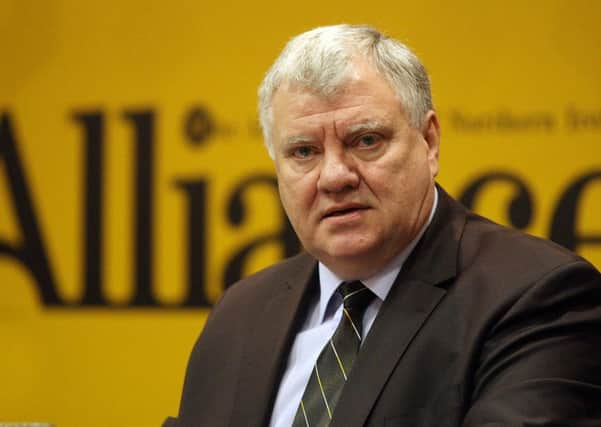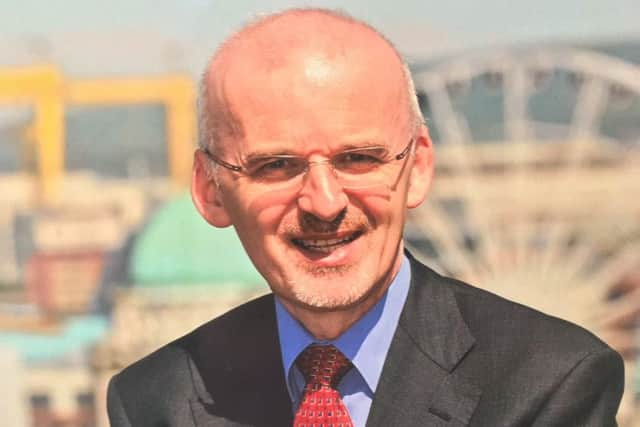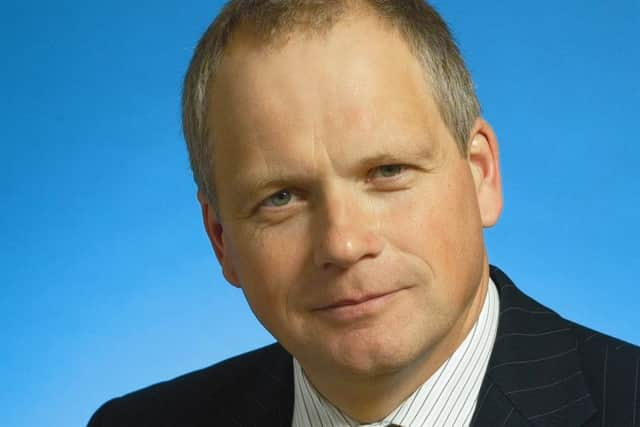Ben Lowry: When moderates come to see how legacy processes begin to justify the IRA, more of them will speak out


First, Dr Philip McGarry, a leading psychiatrist, wrote a blistering piece dismissing loose talk that refers to political killers as ‘lunatics’ and ‘mindless’ and so on.
On the contrary, he said, they were calculating and a long way from mentally ill – something that he knows a lot about, having been a consultant psychiatrist for 26 years, 17 of them in west Belfast.
Advertisement
Hide AdAdvertisement
Hide AdHe said that while Northern Ireland had prior to 1969 been a partially sectarian state, no respected independent body had – or could – argue that terrorism was a remotely proportionate response to those wrongs.


Dr McGarry’s north Belfast home was set alight in 1981 in a possible loyalist sectarian attack. As the family jumped from the property for their lives, his father broke a leg. The culprits were not found. It is the sort of attack that could lead to bitterness but he later got involved in moderate politics.
Then yesterday, John Cushnahan, Alliance Party leader from 1984-87, also dismissed justifications for joining the IRA that are based on anti Catholic discrimination and economic disadvantage.
Mr Cushnahan was born in the lower Falls in 1948, the same year Gerry Adams was born. They both attended St Mary’s Christian Brother’s school in the west of the city.
Advertisement
Hide AdAdvertisement
Hide Ad• See below links to articles by McGarry, Cushnahan, Ringland


Both Dr McGarry and Mr Cushnahan spoke with eloquent force about the horror of extremism on both sides of the tribal divide, and listed some of the many atrocities carried out by terrorists, such as the crimes against humanity at McGurk’s bar or La Mon in the 1970s.
Their interventions are significant for two reasons.
The first reason is that politicians in the centre ground rarely now call out Sinn Fein over the IRA and its past.
Their reticence is understandable. Banging on about the past sounds negative, when centrists are trying to encourage the extremes to stay in the middle ground.
Advertisement
Hide AdAdvertisement
Hide Ad

The problem is that republicans are relentless on the past. Sinn Fein have made legacy a core demand in Stormont talks, such is its confidence that the structures will justify the IRA narrative.
There are numerous republican legacy cases in the courts. They are part of a well organised, well funded, multi pronged and effective bid to legitimise IRA terror and to portray the British state as having been murderous and having engaged in widespread collusion with loyalists.
It is, as I will never tire of writing, an utter distortion of the truth. The statistics are stark: around 1,100 loyalist murders and fewer than 100 of them – by some accounts fewer than 50 – were republican paramilitaries. Loyalist intelligence was useless.
If the state had been even remotely as ruthless as republicans imply, Martin McGuinness and Gerry Adams and other leading republicans would have been dead before the end of 1972, let alone alive and active in the republican movement decades later.
Advertisement
Hide AdAdvertisement
Hide Ad

The silence of political moderates amid this legacy push to justify the IRA is central to its success – and I specify the IRA because there is no push to justify loyalist terrorism.
But I know enough long-standing Alliance members to be able to testify to the abhorrence that they almost invariably feel towards all terrorism, even though their decency is such that they try to be positive and talk constructively about the future.
I predict that a point will come, in a year or two or three, when more and more of them speak out, so alarming are the things that are coming on legacy matters.
Some unionists who have been following legacy developments tell me I have got this wrong and that the coming Historical Investigations Unit will be uncomfortable for the IRA.
Advertisement
Hide AdAdvertisement
Hide AdI continue to fear that there are number of reasons – some innocent, some not – why it could turn disproportionately on a state that prevented civil war and that reacted with such exemplary restraint to murder and mayhem, albeit with grave lapses (cumulatively many, proportionately few).
The second reason that Dr McGarry and Mr Cushnahan’s interventions are important is that they are from a Catholic background. It is increasingly hard for anyone from a Protestant background to dispute the narrative that Northern Ireland was an apartheid state to which violence was a reasonable response. Disputing that leads to howled charges of sectarianism.
Thus, while Trevor Ringland – one of the most moderate men in pro Union politics and a person who has spent years in reconciliation work – is becoming increasingly outspoken on the subtly pro IRA way in which legacy is panning out, he will only ever get so far before even a man as impeccably anti sectarian as him is accused of bigotry.
When however, someone such as Mr Cushnahan, who was born in the Falls in 1948 and lived through the eruption of the Troubles in one of its epicentres, disputes that justification for the IRA, it is harder to dismiss.
• Ben Lowry (@BenLowry2) is News Letter deputy editor
Advertisement
Hide AdAdvertisement
Hide Ad